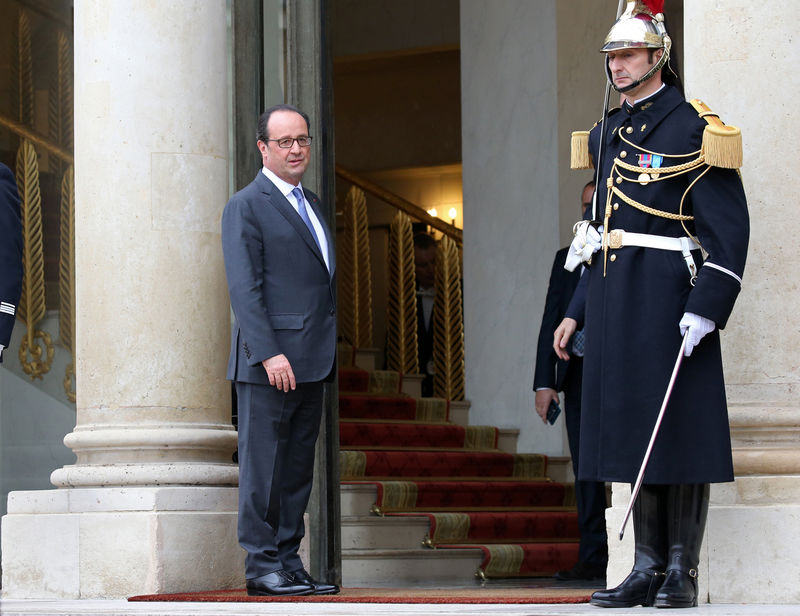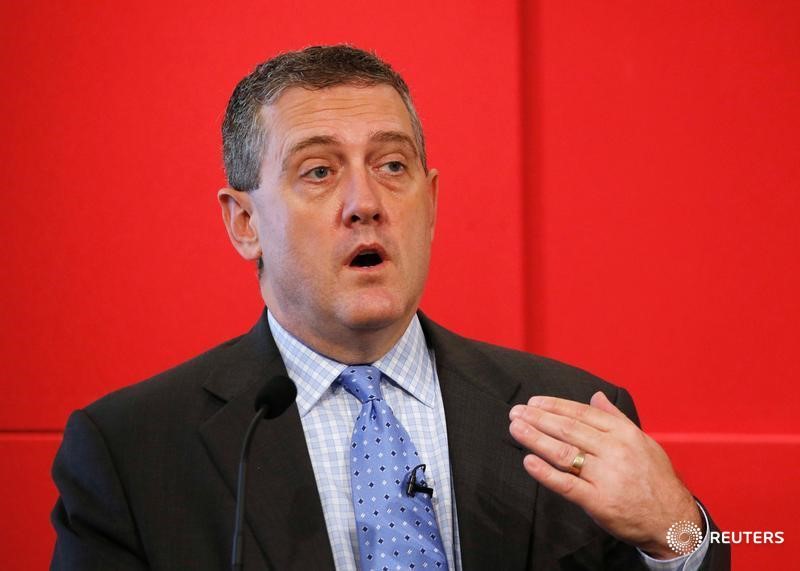ST. LOUIS (Reuters) - The Republican sweep of the White House and Congress could break the current gridlock over national policy in a potential boon to the U.S. economy, St. Louis Federal Reserve bank president James Bullard said on Thursday.
Bullard said the potential positives from Tuesday's outcome, including the possibility of regulatory reform and a boost to growth through new infrastructure spending, for now outweighed any concern about volatility in financial markets surrounding President-elect Donald Trump's surprise victory.
"It is not a level of volatility that is troubling ... It certainly breaks gridlock in Washington, which has been a key complaint of how the economy has operated," Bullard said to reporters after a morning presentation here. "We are basically on track the same way we were before the election."
The Fed has positioned itself for a likely interest rate increase in December. Despite expectations that a Trump victory might disrupt financial markets, or even threaten a trade war with his promise of new tariffs, equity markets have moved higher so far and investors maintained their expectation that the Fed will move next month.
Trump had been critical of the Fed during the campaign, and his victory coupled with Republican control of Congress could open the door for approval of a variety of proposals to bring the central bank under closer control of Congress.
The central bank has two open seats on its seven-person board of governors, and Trump will have the chance to appoint a new chair in 2018, when Chair Janet Yellen's term expires.
Bullard said he did not think any of those facts will dramatically change the course of U.S. monetary policy.
"They have bigger fish to fry," Bullard said of an incoming administration that has promised major changes to national health care policy, a major infrastructure spending program and tax cuts.
"The Fed has done a very good job and ... even if you had a whole different group of people on the (Federal Open Market Committee) they would have come to the same conclusions," about how to dig out from the crisis and set policy in recent years, Bullard said.

Even as Trump adds his stamp by making appointments, Bullard said he felt the Fed's structure, with seven board members serving 14 year terms and 12 regional bank presidents who are hired by private boards of directors, would ensure policy remains "at arms length" from political demands.
